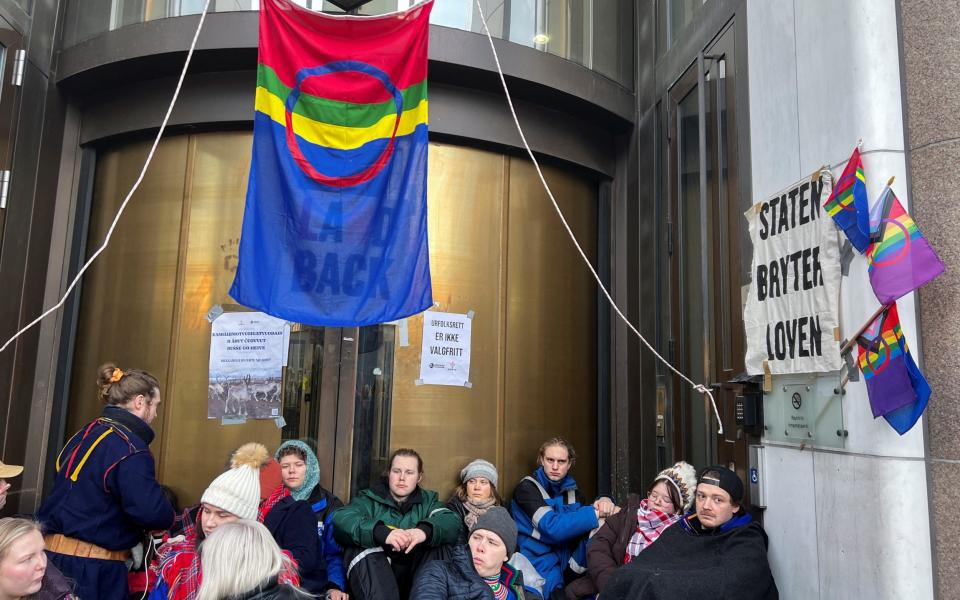Greta Thunberg blocks door to Norway energy ministry over refusal to take down wind turbines

- Oops!Something went wrong.Please try again later.
Greta Thunberg has been taking part in a five-day protest blocking the entrance to Norway's energy ministry to protest against wind turbines.
Miss Thunberg was specifically demonstrating against wind turbines built on land traditionally used by indigenous Sami reindeer herders.
"Indigenous rights, human rights, must go hand-in-hand with climate protection and climate action. That can't happen at the expense of some people. Then it is not climate justice," she said while sitting outside the ministry's main entrance with other demonstrators.
Norway's supreme court in 2021 ruled that two wind farms built in central Norway violated Sami rights under international conventions, but the turbines remain in operation more than 16 months later.

Reindeer herders in the Nordic country say the sight and sound of the giant wind power machinery frighten their animals and disrupt age-old traditions.
Ms Thunberg and a dozen other Sami demonstrators have occupied the ministry's reception area since Thursday. Police forcibly removed them at around 1.30am on Monday and detained them before releasing them.
They returned to the ministry at around 6am.
The Sami protesters wore their traditional costume, often called gakti, inside out as a sign of protest.
The ministry said the ultimate fate of the wind farms is a complex legal quandary despite the supreme court ruling and is hoping to find a compromise.
The court's verdict did not say what should happen next to the 151 turbines, which can power some 100,000 Norwegian homes, or what should happen to the dozens of kilometres (miles) of roads built to facilitate the construction.
"We understand that this case is a burden for the reindeer herders," Terje Aasland, the minister of energy and petroleum, said in a statement to Reuters.
"The ministry will do what it can to contribute to resolving this case and that it will not take longer than necessary," he added.

